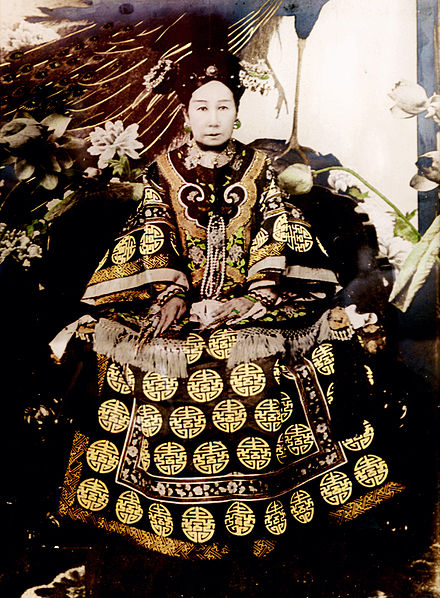1908
Death of the Dragon Lady
Cixi (1835-1908) was the Dowager Empress of China during that empire’s last dynasty, the Qing (or Manchu). She effectively ruled that country for 47 years attempting to hold back the tides of change and to limit the power of foreigners.
A concubine to the Xianfeng Emperor, she gave birth to the royal heir and upon the death of her husband in 1861 she ruled as a regent for her son. When he died in 1875, she placed her nephew on the throne and ruled through him. This was all contrary to dynastic tradition but she was a ruthless infighter and shrewd politician who outmaneuvered ministers and royal family members to keep her grip on power.
In the 19th century China was a shaky and tottering empire, forced by European and American governments to accept the opium trade and foreign domination of much of the Chinese economy. Cixi at first approved of, and then undermined, attempts to modernize China. By the 1890s the growing threat from a modernized Japan compelled many officials and the emperor to press for drastic reform, the Hundred Days’ Movement, to which Cixi responded by launching a coup, ending the reforms and exiling the emperor.
In 1900 the Boxer Rebellion broke out, an anti-foreign and anti-Christian uprising, that saw the massacre of thousands of foreigners, especially missionaries, and Chinese converts. The rebel armies moved on to Beijing where they laid siege to the diplomatic compound, drawing the world’s attention to the matter. Cixi, at first, secretly, and then openly, sided with the Boxers, which proved a mistake as foreign military forces invaded China and crushed the rebellion, levying heavy penalties on her government. She lived long enough to see her choice, Prince Puyi, ascend the throne but shortly after her death, a revolution overthrew the Qing and set up a Chinese Republic.
